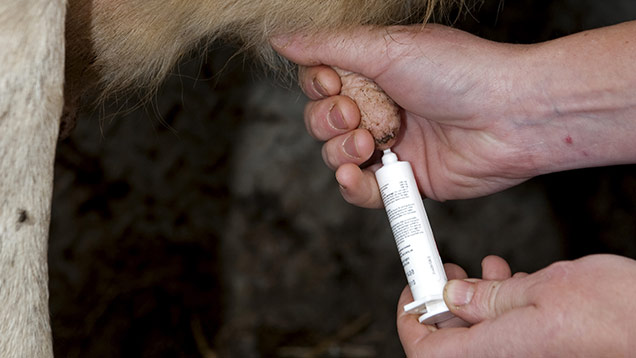Dairy farmers unsure of antibiotics best practice
 © FLPA/Rex Shutterstock
© FLPA/Rex Shutterstock An exclusive survey of dairy farmers to understand their approach to drying off cows has revealed there is still some confusion over the use of antibiotics and selective dry cow therapy.
A study of more than 200 dairy farmers by Farmers Weekly and animal health company Zoetis found only 68% of farmers have heard about selective dry cow therapy.
See also: Guide to best practice drying off procedure
This is despite Arla, as part of its Arla Garden quality-assurance programme, leading the way and requiring all of its producers from next month (1 October) to discuss and agree with their vet the use of antibiotics in their dry cows and to move to using selective dry cow therapy.
Drying-off practices among many dairy farmers have traditionally involved blanket use of antibiotics across all cows to treat and prevent any new infections developing during the dry period.
However, farmers are being encouraged to target antibiotics use. This is due to concerns over antibiotics resistance, the effectiveness of teat sealants in mastitis prevention and research showing use of narrow-spectrum antibiotics in low cell count cows could increase the risk of clinical mastitis in the following lactation.
Of the farmers that had heard about selective dry cow therapy:
- 30% were positive about it, saying they were either practising it, thought it was progressive, or would make things better and cheaper.
- 32% said they were concerned about it, believing it would add more time, it was risky, or could lead to an increase in cell counts.
However, mastitis expert Andrew Bradley, director of Quality Milk Management Services, says the cost benefits from selective dry cow therapy are quite clear.
“Selective dry cow therapy could potentially be saving farmers money by reducing medicine costs,” he adds. “There is also evidence to show it could reduce mastitis incidence in the following lactation, which is a difficult concept for farmers to get their heads around. However, it relies on them being backed up with good advice and support from their vet,” he adds.
Read the full survey results: Use of antibiotics on UK dairy farms
